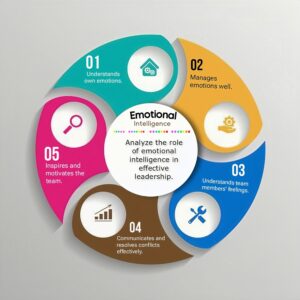What measures can sports organizations take to prioritize and support the mental health and well-being of athletes?
Feminism, in my opinion, is founded on the idea in achieving social, economic, and political equality between genders, with roots predominantly in the West but reverberating globally. Throughout Western history, women were frequently restricted to household responsibilities, while men dominated publRead more
Feminism, in my opinion, is founded on the idea in achieving social, economic, and political equality between genders, with roots predominantly in the West but reverberating globally. Throughout Western history, women were frequently restricted to household responsibilities, while men dominated public and political affairs. Women in medieval Europe lacked essential rights such as property ownership and education, and societal norms severely limited their public participation. For example, late-nineteenth-century France required women to cover their heads in public, and in some regions of Germany, husbands retained the legal ability to sell their wives.
Even in the early twentieth century, significant impediments remained: several European countries and the majority of the United States denied women the ability to vote and hold office. Women frequently required male proxies for legal and business affairs, highlighting widespread gender inequities. Despite development in many countries, inequities still exist in some parts of the world today.
Feminist movements around the world continue to fight historical and contemporary inequities, calling for gender equity in all areas of society. Feminism aspires to make the world a more just and equitable place by removing systemic hurdles and encouraging inclusive policies.
Feminism aims to make the world more just and equal by removing systemic barriers and promoting inclusive policies. By questioning entrenched conventions and advocating for equal opportunities, feminist groups around the world seek not only to correct historical injustices but also to foster a future where all individuals, regardless of gender, can thrive and contribute to society on equal terms. Ultimately, feminism is about establishing a world where everyone has the opportunity to pursue their goals without prejudice based on gender.
See less

Sports organizations can take several measures to prioritize and support the mental health and well-being of athletes: Education and awareness: Provide education and training for athletes, coaches, and support staff about mental health issues, including signs and symptoms of common mental health conRead more
Sports organizations can take several measures to prioritize and support the mental health and well-being of athletes:
Education and awareness: Provide education and training for athletes, coaches, and support staff about mental health issues, including signs and symptoms of common mental health conditions.
Access to mental health professionals: Ensure that athletes have access to mental health professionals such as psychologists, counselors, and psychiatrists who are experienced in working with athletes.
Destigmatization: Work to destigmatize mental health struggles within the sports community to encourage athletes to seek help without fear of judgment or reprisal.
Comprehensive support programs: Develop and implement comprehensive mental health support programs that include resources for prevention, early intervention, and treatment.
Confidentiality: Guarantee confidentiality for athletes seeking mental health support to create a safe and trusting environment for seeking help.
Supportive team culture: Foster a team culture that values mental health, open communication, and mutual support among athletes, coaches, and staff.
Stress management and coping skills: Offer resources and training to help athletes develop stress management techniques and coping skills to navigate the pressures of competition and high-performance environments.
Work-life balance: Encourage and support athletes in maintaining a healthy work-life balance to prevent burnout and promote overall well-being.
Athlete advocacy and representation: Include athletes in decision-making processes related to mental health initiatives and ensure their voices are heard in creating supportive environments.
Follow-up and aftercare: Provide ongoing support and aftercare for athletes who have sought help for mental health challenges to ensure continuity of care and long-term well-being.
By implementing these measures, sports organizations can demonstrate a commitment to supporting the mental health and well-being of their athletes, contributing to a healthier and more sustainable sports culture.
See less